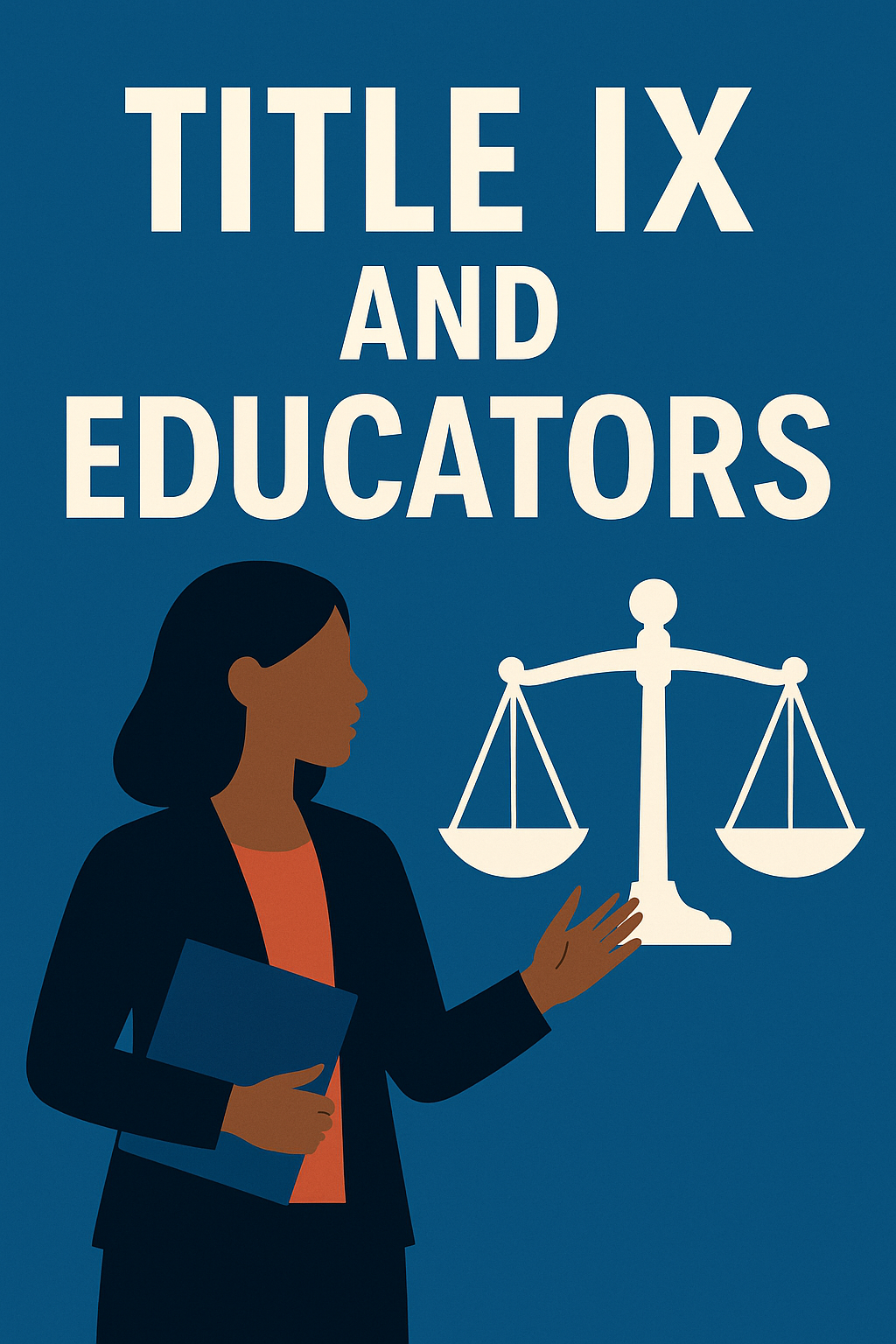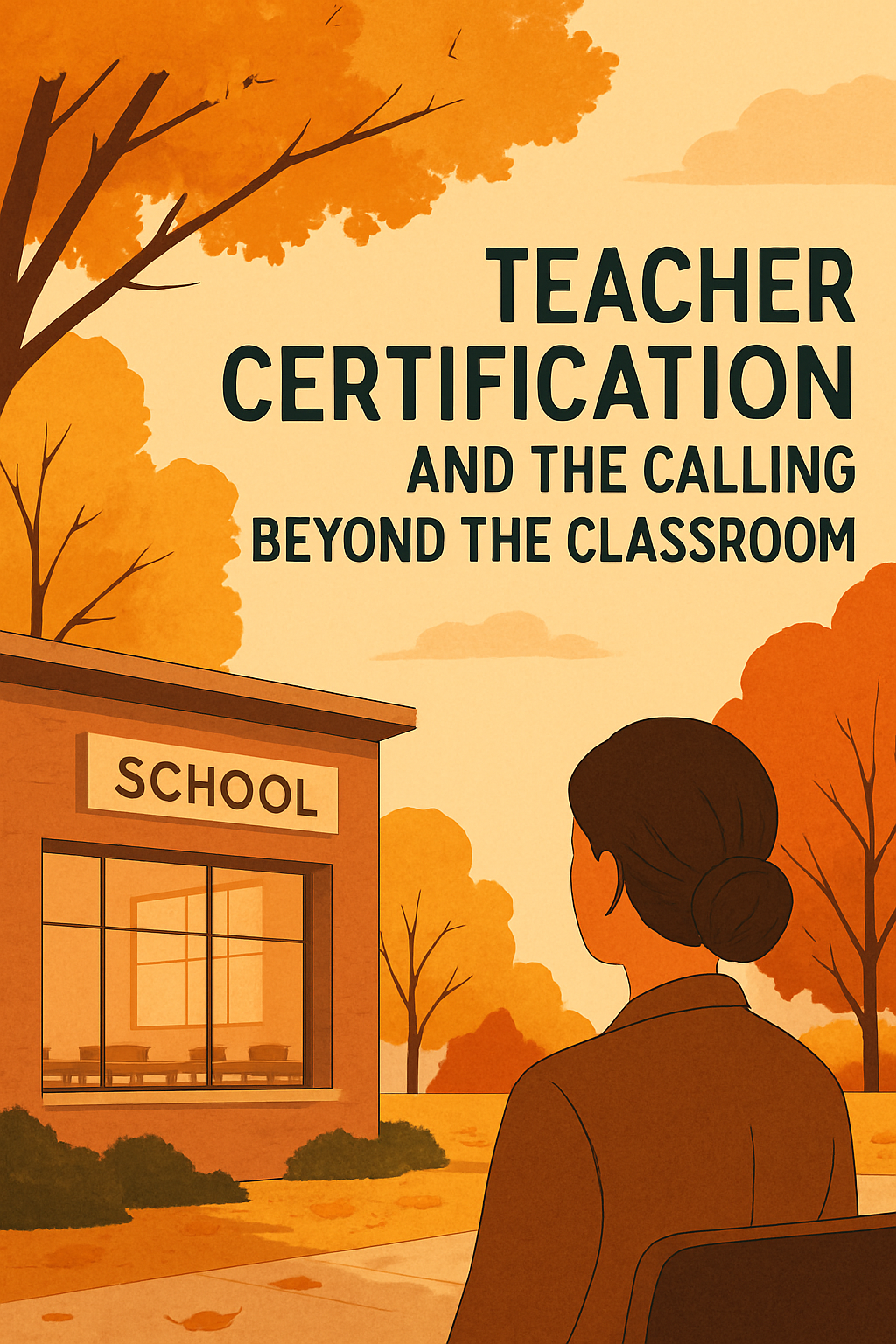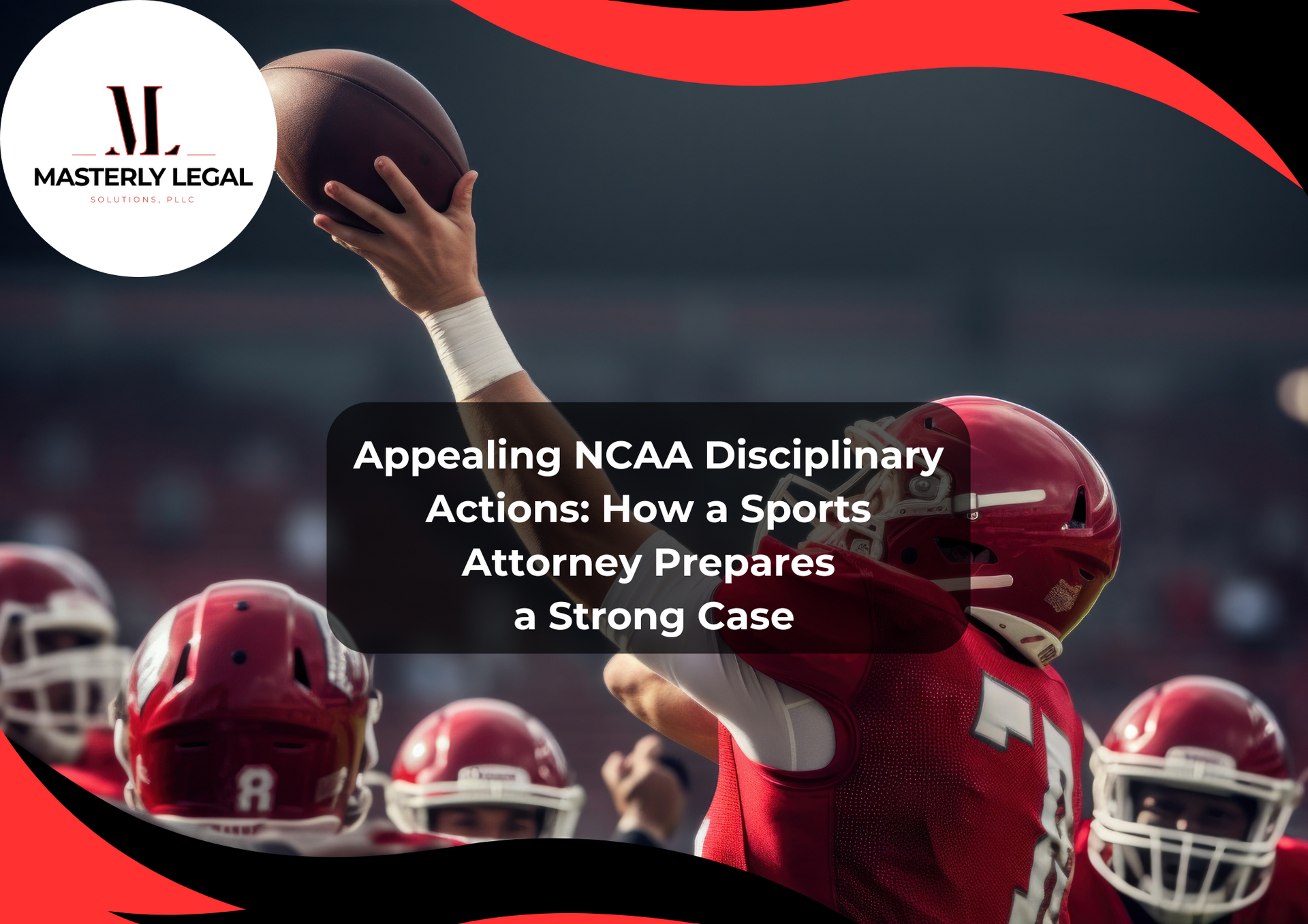How to Protect Your Athletic Program During an NCAA Investigation: Essential Legal Strategies
Facing an NCAA investigation can be one of the most challenging and high-stakes experiences for any college or university involved in collegiate sports. These investigations often delve deep into the athletics programs, looking for NCAA rules violations or issues regarding student athletes' eligibility and compliance. For colleges and universities, understanding how to navigate these investigations while protecting the reputation and integrity of their athletic programs is crucial.
This article outlines essential strategies for managing an NCAA investigation and provides insights into how an NCAA attorney and proper legal strategies can help institutions minimize risks and defend against NCAA infractions.
What Triggers an NCAA Investigation?
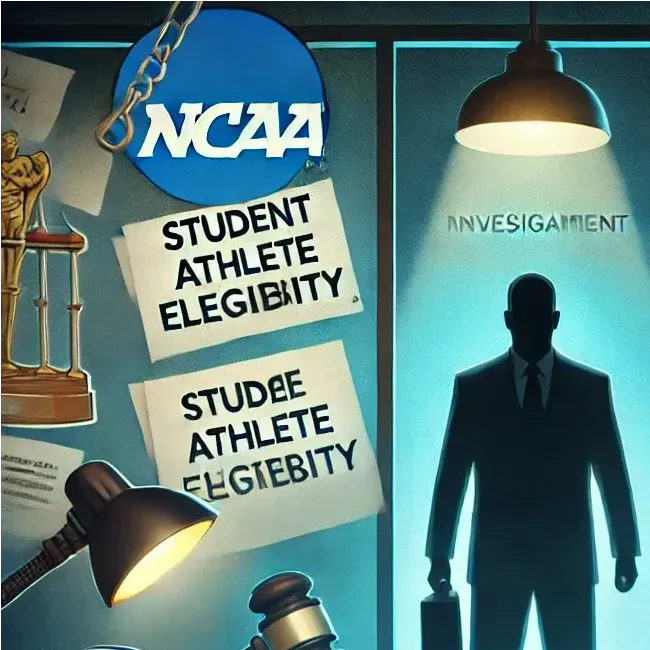
An NCAA investigation is often triggered by allegations of NCAA regulations violations. These violations could be related to recruitment, NCAA eligibility, name, image, and likeness (NIL) agreements, or improper extra benefits provided to student athletes. Triggers may arise from internal audits, media reports, or whistleblowers, including former NCAA athletes, or even other competing colleges.
Common triggers of NCAA investigations include:
- Reports of recruitment violations, such as offering improper financial incentives to NCAA athletes
- Allegations of academic fraud or misrepresentation of student athlete eligibility
- Concerns related to NIL agreements that do not comply with NCAA standards
- Claims of improper extra benefits provided to athletes and their families
These triggers prompt the NCAA enforcement staff to initiate an investigation, which could involve reviewing documents, interviewing coaches, and scrutinizing collegiate athletics programs for compliance with NCAA bylaws.
Navigating NCAA Investigations: Protecting Your College Sports Program
When an NCAA investigation begins, protecting your college sports program becomes a top priority. A thorough understanding of compliance procedures and NCAA regulations is essential to mitigate potential risks. For institutions involved in college sports, being proactive can prevent severe consequences such as scholarship losses or postseason bans.
The success of any college sports program depends on maintaining eligibility standards, which is why institutions must work closely with legal counsel during investigations. Ensuring your college sports program adheres to NCAA regulations will safeguard your athletes and the future of the institution.
Working with the NCAA Investigator: Key Strategies for Protecting Your Athletic Program
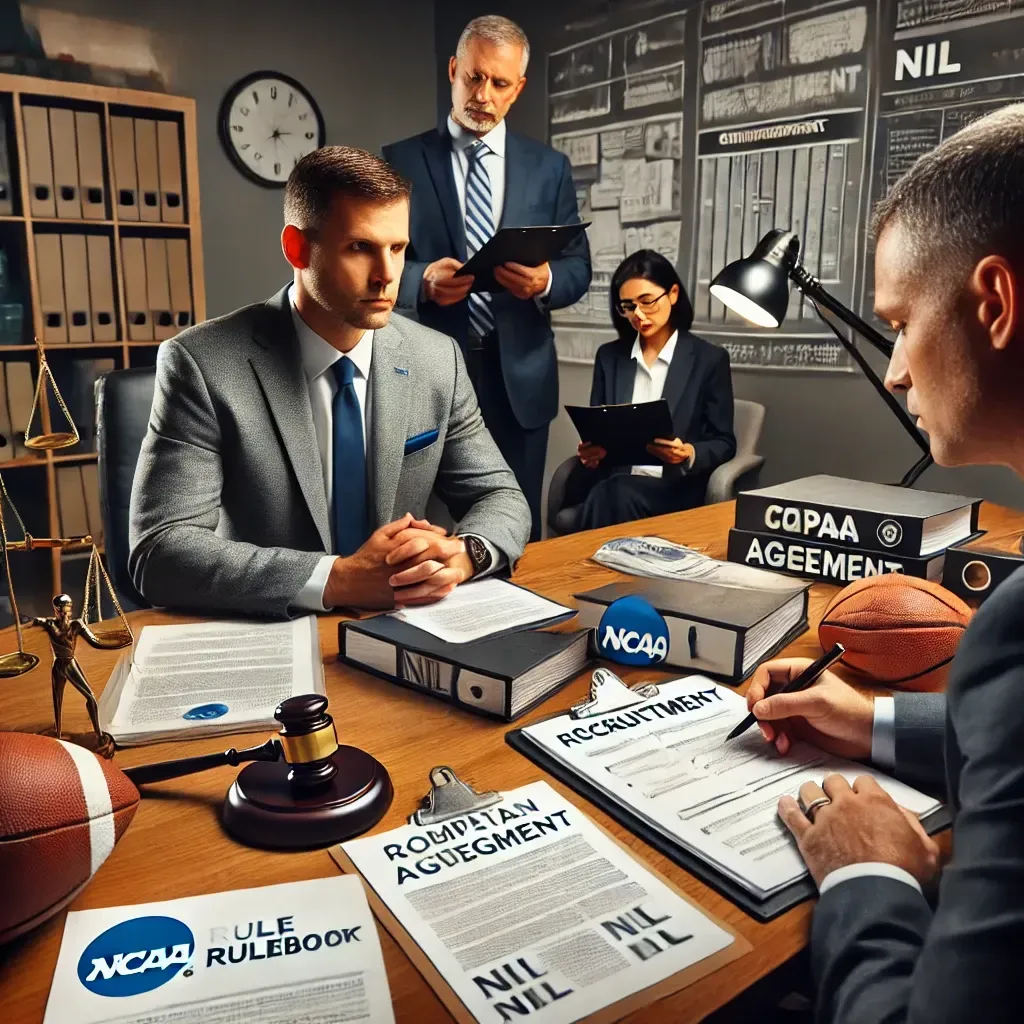
During an NCAA investigation, the role of the NCAA investigator is critical to the outcome of the case. The NCAA investigator is responsible for gathering facts, reviewing evidence, and interviewing key personnel within your athletic program. It's essential to understand that the NCAA investigator will closely scrutinize compliance with NCAA regulations, making it important to cooperate while protecting your institution’s legal rights.
Your legal team should be involved at every step, ensuring that interactions with the NCAA investigator are handled professionally. The NCAA investigator may conduct multiple interviews with coaches, athletes, and administrators, and it’s crucial to ensure everyone is well-prepared.
An experienced NCAA counsel can help guide these interactions, ensuring that the NCAA investigator receives the necessary information without compromising your defense. Ultimately, how you manage your relationship with the NCAA investigator can significantly influence the outcome of the investigation.
Protecting College Athletes During an NCAA Investigation: Key Legal Strategies
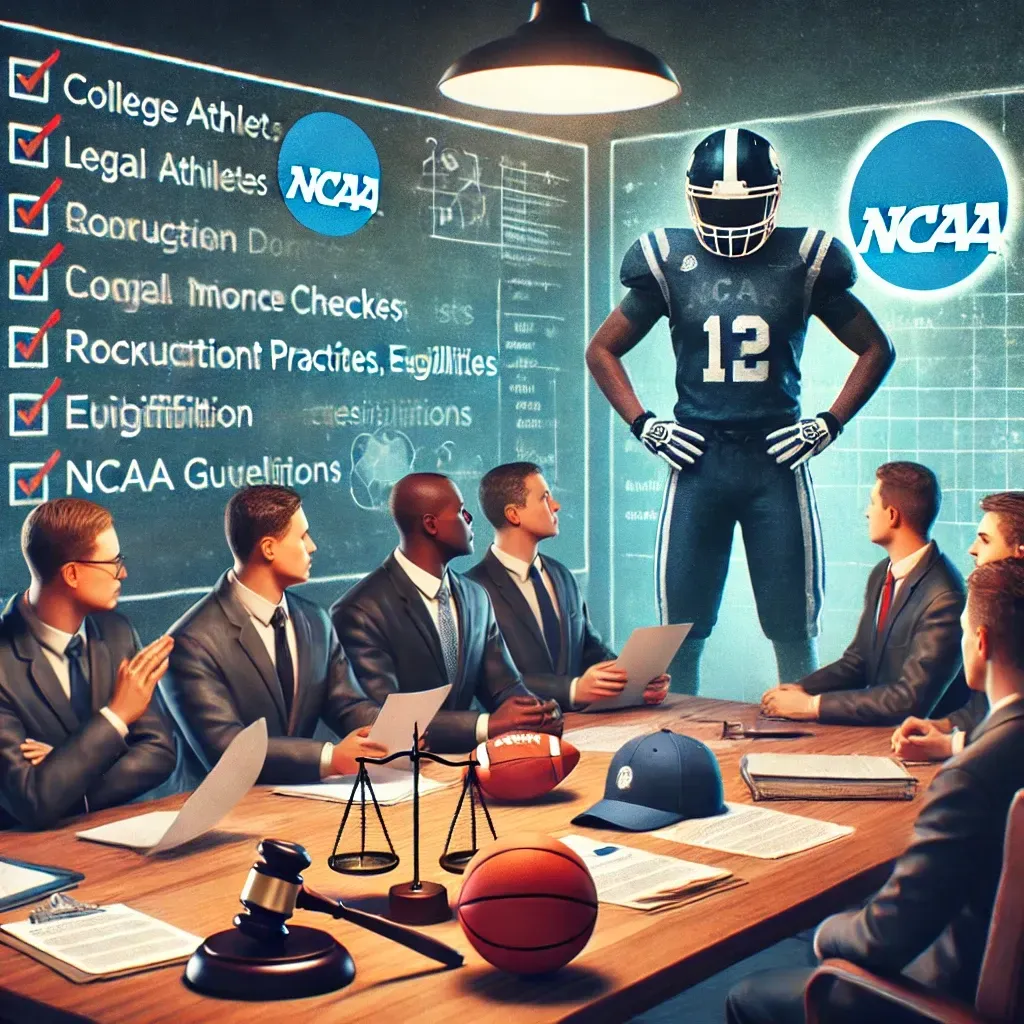
During an NCAA investigation, ensuring the protection and rights of college athletes is paramount. The focus on college athletes often centers around eligibility, recruitment practices, and possible violations related to benefits. It is critical that institutions conduct internal reviews to confirm their college athletes meet all compliance standards and are following NCAA guidelines.
Any missteps can result in penalties that not only impact the school but also harm the careers of the college athletes involved. Legal counsel can help ensure that the rights of college athletes are safeguarded throughout the process, especially during interviews with NCAA investigators.
Furthermore, keeping college athletes informed about the process and their roles is crucial to navigating the investigation successfully. By prioritizing the protection of college athletes, the institution can mitigate risks and maintain its reputation in collegiate sports.
Safeguarding NCAA Athlete Eligibility During an Investigation
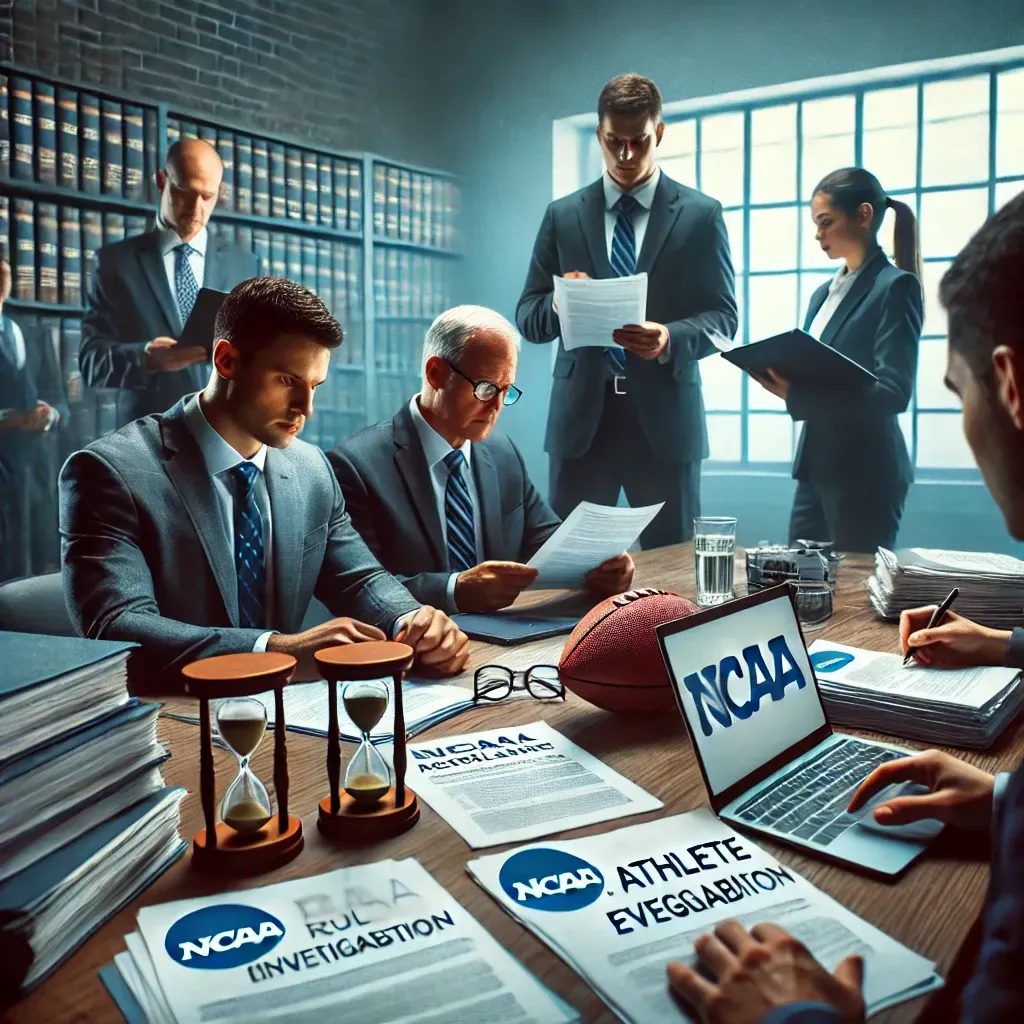
One of the most critical aspects of an NCAA investigation is ensuring the eligibility of each NCAA athlete in your program. During an investigation, the NCAA will scrutinize whether any NCAA athlete received improper benefits, violated academic standards, or engaged in actions that compromise their standing under NCAA rules.
To protect your athletes and the program, it's essential to conduct thorough internal reviews and have clear communication with legal counsel to address any potential issues before they escalate. By taking proactive steps, you can safeguard your athletes' eligibility and minimize the impact of an investigation on your athletic program.
Identifying Potential NCAA Rules Violations Early to Protect Your Program
During an NCAA investigation, identifying and addressing any potential NCAA rules violations is crucial to minimizing risks and penalties. Universities must conduct internal reviews to assess compliance and spot areas where violations may have occurred, such as improper recruitment practices or financial aid discrepancies.
By identifying these issues early, institutions can work with legal counsel to address and correct violations, showing the NCAA that proactive measures are in place. This approach not only helps mitigate penalties but also reinforces the institution's commitment to maintaining the integrity of its athletic program.
The Role of NCAA Enforcement Staff
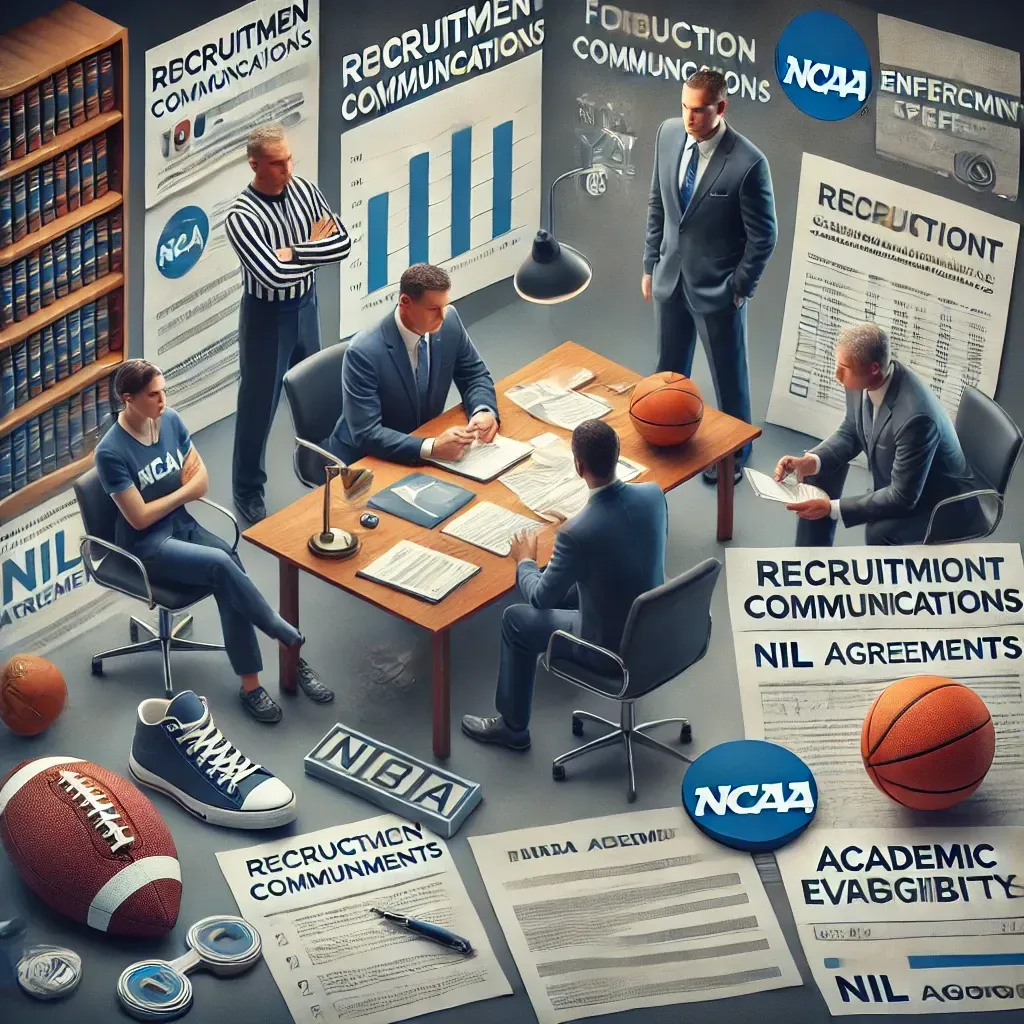
The NCAA enforcement staff plays a critical role in conducting thorough NCAA enforcement investigations. Their task is to ensure that universities and colleges comply with the NCAA regualations and uphold the integrity of collegiate sports.
Once an investigation is launched, the NCAA enforcement staff will gather evidence, conduct interviews, and scrutinize the actions of the athletic department, coaches, and student athletes.
The NCAA enforcement procedures follow strict protocols to ensure a comprehensive investigation. The staff reviews:
- Recruitment communications
- Financial records, particularly those related to scholarships and NIL agreements
- Academic performance and eligibility verification of student athletes
- Compliance records regarding Title IX gender equity
The information collected by the NCAA enforcement staff is submitted to the NCAA committee for review, and if violations are found, penalties may be imposed.
Ensuring NCAA Rules Compliance: A Key Strategy in Protecting Your Athletic Program
Maintaining NCAA rules compliance is critical in safeguarding your athletic program during an NCAA investigation. Institutions that prioritize NCAA regulations compliance are better prepared to address potential issues before they escalate into major infractions. By conducting regular audits, universities can identify gaps and correct them proactively.
Working closely with an NCAA lawyer ensures that your program adheres to the strict standards of NCAA rules compliance, reducing the risk of severe penalties. Effective NCAA regulations compliance strategies also demonstrate institutional control, showing the NCAA that your program is committed to following the rules and maintaining the integrity of college sports.
Protecting Your Athletic Program During an NCAA Investigation
When your athletic program is the subject of an NCAA investigation, it’s essential to take immediate steps to protect your institution and minimize potential damage.
Here are key strategies:
1. Retain an Experienced NCAA Lawyer
One of the most critical actions you can do to safeguard your athletic program is to hire a knowledgeable expert. These lawyers have a great grasp of the investigation process and are experts in NCAA compliance. They can assist colleges with record organization, interview preparation, and navigating communications with NCAA inspectors.
An NCAA lawyer is able to:
- Advise the institution on how to respond to requests from the NCAA enforcement staff
- Assist in conducting internal reviews to ensure compliance with NCAA bylaws
- Advocate on behalf of the institution before the NCAA committee on infractions
Without professional legal counsel, an institution risks penalties such as postseason bans, scholarship reductions, and other severe sanctions.
2. Conduct Internal Reviews
Before an investigation begins, it’s essential to conduct thorough internal reviews of the athletic program. These reviews can help identify and address any compliance issues before they are flagged by the NCAA enforcement staff.
Key areas for internal review include:
- Recruitment practices: Ensuring compliance with NCAA rules to avoid offering improper financial incentives to potential recruits
- NIL agreements: Verifying that all name, image, and likeness agreements meet NCAA standards
- Eligibility verification: Ensuring all student athletes meet the academic and eligibility requirements for participation in NCAA division sports
Conducting these reviews demonstrates institutional control and can show the NCAA that the university is proactive in maintaining compliance.
3. Cooperation with NCAA Investigators
While it’s crucial to protect the institution’s legal interests, cooperating with the NCAA investigators is key to resolving the investigation effectively. Universities should provide the requested documents, cooperate in interviews, and work closely with their legal counsel to ensure transparency without compromising their defense.
Legal Risks of NCAA Investigations
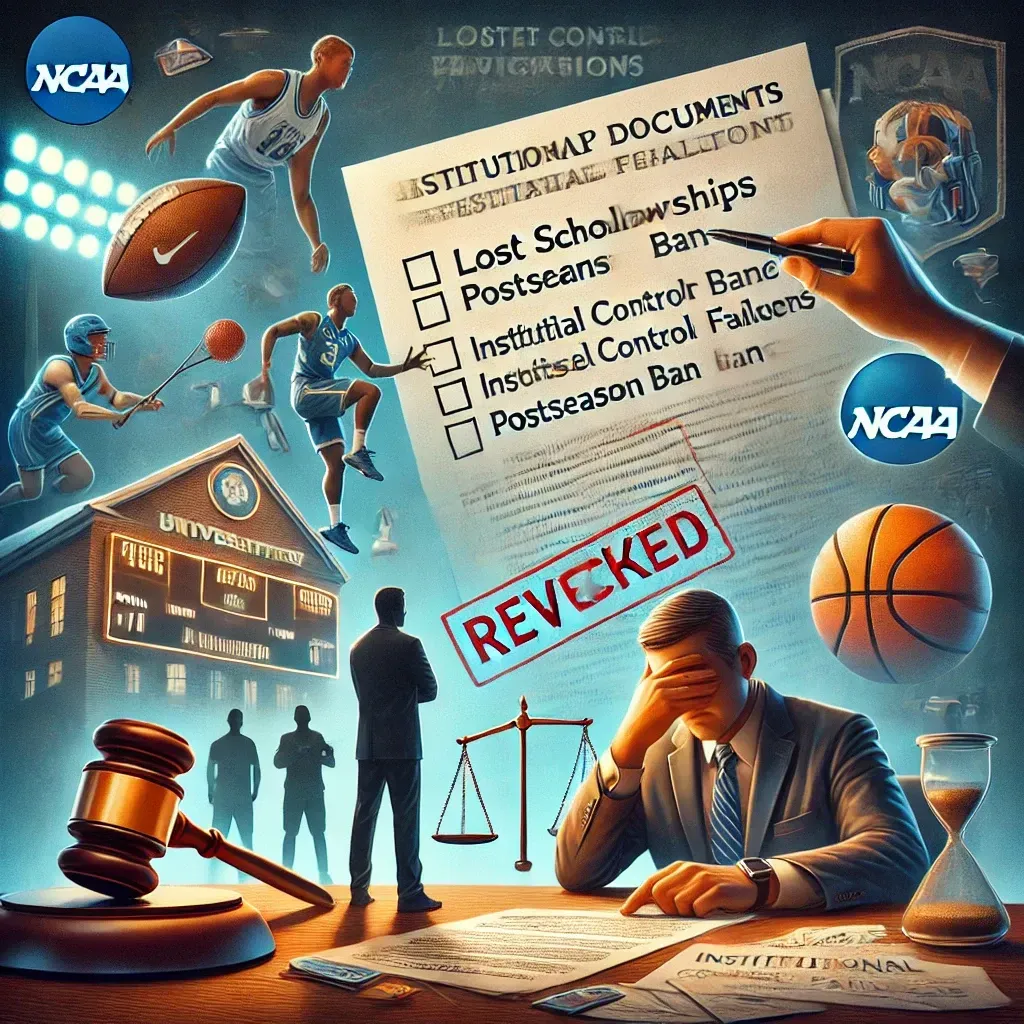
An NCAA investigation poses several legal risks for universities, athletic departments, and student athletes. The penalties for non-compliance can be severe, including loss of scholarships, postseason bans, and reputational damage that could take years to recover from.
1. Scholarship Losses
One of the most damaging penalties is the loss of scholarships, which are essential for attracting and retaining talented college athletes. For many programs, scholarships are the backbone of their recruiting strategy, and losing them can have long-lasting effects on the program’s competitiveness.
2. Postseason Bans
Postseason bans prevent teams from participating in key tournaments and championships, significantly affecting both the morale of student athletes and the institution’s standing in college sports. For some programs, this can be the most devastating penalty, as it impacts both current and future recruitment efforts.
3. Institutional Control Failures
If the NCAA determines that a university has failed to maintain proper institutional control, the penalties can be particularly harsh. This finding means that the institution did not have sufficient oversight of its athletic department, allowing violations to occur unchecked. Schools found lacking in institutional control face significant reputational damage and ongoing scrutiny.
Ensuring NCAA Eligibility During an Investigation
Maintaining NCAA eligibility for your athletes is a critical focus during any NCAA investigation. The NCAA will scrutinize whether student-athletes meet academic, amateurism, and other eligibility standards set forth by the organization. Institutions must conduct thorough internal audits to confirm that all athletes are compliant with these requirements before an investigation begins.
Failure to ensure proper NCAA qualification can result in disqualification of athletes, forfeiture of games, and other penalties. By proactively reviewing eligibility records and working closely with legal counsel, schools can safeguard their athletes' standing and protect the program from severe consequences during an investigation.
NCAA Bylaws and Compliance
The NCAA bylaws govern every aspect of collegiate athletics. From recruitment and eligibility to NIL agreements and Title IX gender equity compliance, these bylaws are critical for maintaining the integrity of college sports. Adhering to these bylaws is essential for avoiding NCAA infractions and ensuring that colleges can compete fairly within their respective NCAA division.
Key areas of NCAA compliance include:
- Ensuring that student athletes meet academic standards and maintain eligibility
- Verifying that recruitment practices follow NCAA rules
- Ensuring that NIL agreements comply with the NCAA's guidelines and do not offer improper benefits to athletes
- Adhering to Title IX regulations to maintain gender equity within athletic programs
Maintaining strong compliance programs within the athletic department helps to prevent NCAA investigations and mitigate the risks of potential infractions investigations.
The Role of the Committee on Infractions
Once an investigation is completed by the NCAA enforcement staff, the findings are forwarded to the NCAA committee on infractions. This committee reviews the evidence and determines whether violations occurred and, if so, what penalties should be imposed.
Penalties can include:
- Scholarship reductions
- Postseason bans
- Fines
- Restrictions on recruitment practices
Institutions may occasionally file an appeal with the infractions appeals panel against the committee's ruling. Working with an NCAA laywer during this process is crucial, as appeals require detailed knowledge of NCAA rules and the ability to present a compelling argument for reducing penalties.
Appeals Process and the Infractions Appeals Committee
If a school disagrees with the penalties imposed by the committee on infractions, it may appeal the decision to the infractions appeals committee. This process allows institutions to present additional evidence or arguments for why the penalties should be reduced or overturned.
An experienced NCAA lawyer plays a vital role in this process, helping the institution prepare its appeal and advocating on its behalf before the appeals panel. The appeals process is complex and requires a thorough understanding of NCAA rules and regulations, making legal representation essential for a successful outcome.
Conducting Compliance Audits
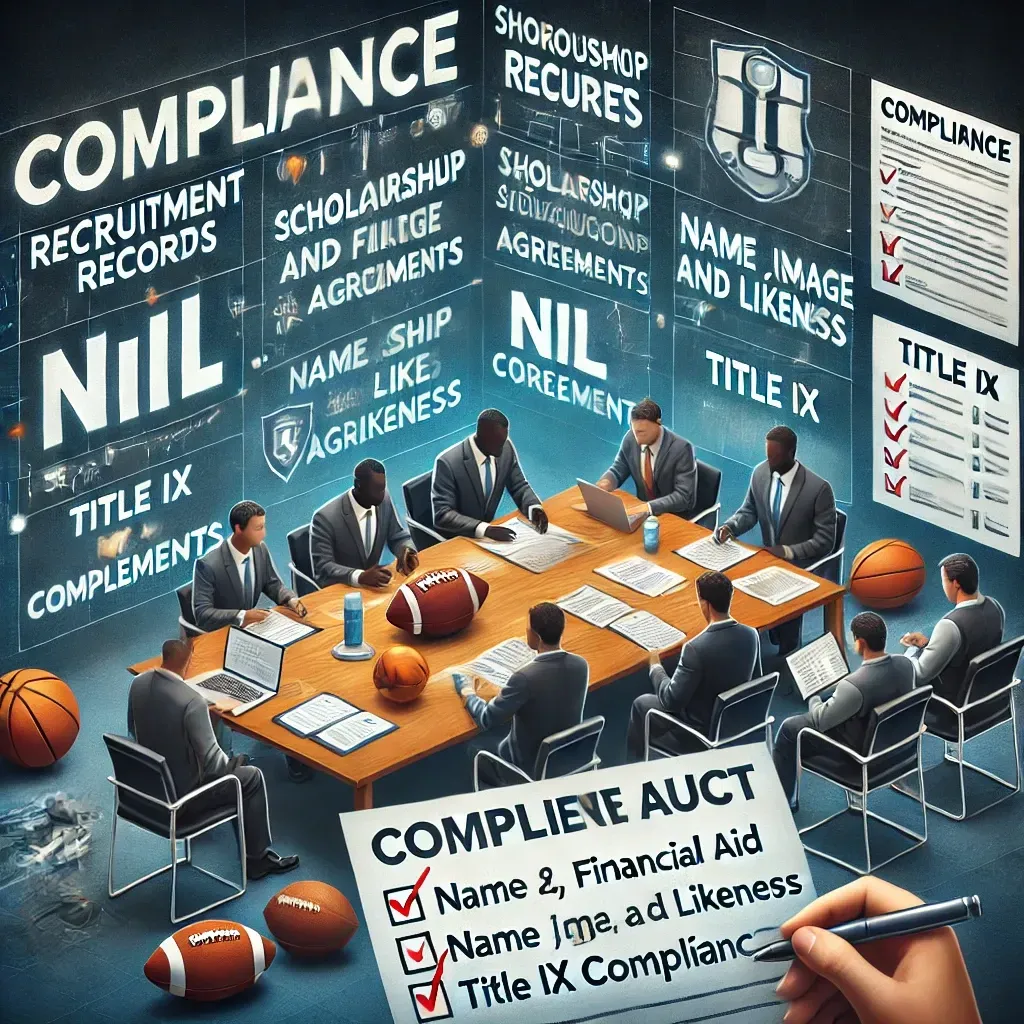
To avoid the risk of future NCAA investigations, colleges should conduct regular compliance audits of their athletic programs. These audits help ensure that the program is adhering to NCAA rules and can identify potential issues before they escalate into major infractions cases.
Key areas for compliance audits include:
- Recruitment records: Ensuring that all communications and offers to potential recruits comply with NCAA rules
- Scholarship and financial aid records: Verifying that scholarships are awarded fairly and within the limits set by the NCAA
- NIL agreements: Ensuring that any name, image, and likeness deals comply with NCAA regulations
- Title IX compliance: Regularly reviewing the program’s adherence to Title IX gender equity standards
By conducting these audits, institutions can demonstrate a commitment to NCAA compliance and reduce the likelihood of triggering an investigation.
Conclusion: Protecting Your Athletic Program
An NCAA investigation can be a serious threat to any athletic program, but with the right legal strategies and compliance measures, colleges can mitigate the risks and protect their athletes, coaches, and institutions from severe penalties. Hiring an experienced NCAA lawyer, conducting thorough internal audits, and maintaining strict adherence to NCAA rules are essential steps in safeguarding your athletic program’s future.
Contact Us for a Free Consultation
If your athletic program is facing an NCAA investigation, Masterly Legal Solutions offers expert legal counsel and defense strategies. Contact us at (972) 236-5051 for a free consultation.
Our attorneys are ready to help you navigate the complexities of NCAA investigations and ensure that your program is protected. Call today to schedule an appointment or reach out via email at for more information.


Looking for Legal & Business Solutions? Contact Us Now
Fill in the form or call us to set up a meeting

